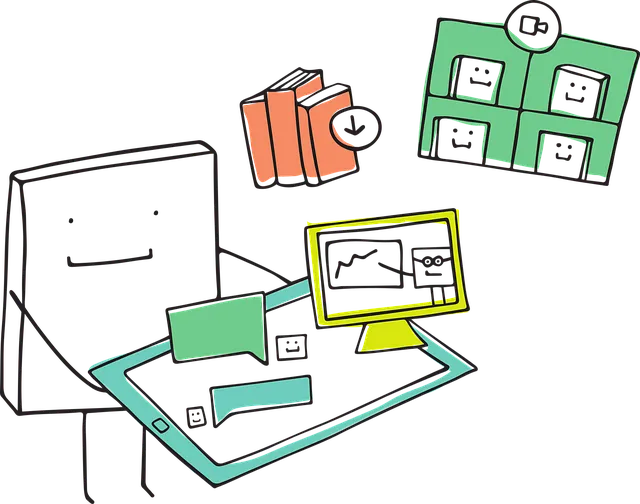Confidential Computing transforms humanitarian aid by delivering secure browsing experiences, protecting sensitive data in remote or challenging environments. Leveraging encryption and localized processing, this technology enables aid workers to access critical resources and collaborate securely without centralized servers, benefiting regions with limited infrastructure or unstable internet connectivity. Tailored solutions are required for diverse digital literacy levels and resource constraints, focusing on securing browsers for small business owners using personal devices. The future of humanitarian aid lies in enhancing privacy and security through Confidential Computing, revolutionizing data access while protecting personal details.
Confidential computing is transforming the way humanitarian aid is delivered, offering unprecedented security for sensitive data. This article explores how aid workers can leverage secure browsing technologies to protect vulnerable communities’ information in chaotic and dangerous environments. We dissect the benefits, challenges, and future prospects of implementing confidential computing, focusing on the unique needs of aid workers. By ensuring privacy, we enhance trust and effectiveness in humanitarian aid delivery, specifically addressing critical security concerns for small business owners operating in sensitive regions.
- Understanding Confidential Computing in Humanitarian Contexts
- The Benefits of Secure Browsing for Aid Workers
- Implementation Challenges and Solutions
- Future Prospects: Enhancing Privacy in Humanitarian Aid Delivery
Understanding Confidential Computing in Humanitarian Contexts

In humanitarian aid work, Confidential Computing offers a revolutionary approach to data protection and secure browsing, ensuring sensitive information remains confidential even in remote or challenging environments. This technology enables aid workers to access critical resources and collaborate securely, thereby enhancing operational efficiency and mitigating risks associated with handling private data.
By leveraging encryption and localized processing, Confidential Computing allows for secure data exchange without relying heavily on centralized servers. This is particularly beneficial in regions with limited infrastructure or where internet connectivity is unstable. It empowers humanitarian aid workers to make informed decisions while maintaining the privacy and security of the individuals they serve, ensuring that sensitive information, such as personal details and medical records, remains protected during transmission and storage.
The Benefits of Secure Browsing for Aid Workers

For humanitarian aid workers, operating in sensitive environments where data privacy and security are paramount, secure browsing is an indispensable tool. It ensures that their online activities, from accessing critical information to communicating with colleagues, remain confidential and protected from prying eyes. This is especially crucial when working in areas with limited or unstable internet connections, where traditional encryption methods may not always be reliable.
Secure browsing enhances aid workers’ ability to navigate the web safely, allowing them to make vital decisions and coordinate efforts without fear of exposing sensitive information. By employing specialized technologies, such as Virtual Private Networks (VPNs) and secure search engines, aid workers can protect their digital footprint, ensuring that their online searches and data transmission remain confidential, even in the face of potential cyber threats or surveillance.
Implementation Challenges and Solutions

Implementing confidential computing in humanitarian aid operations presents unique challenges, particularly when considering the diverse digital literacy levels and resource constraints often faced by aid workers. One significant hurdle is ensuring secure browsing for small business owners and volunteers who may be using personal or shared devices with limited security measures. To address this, tailored training programs can empower users to navigate securely, teaching them about data encryption, privacy-focused browsers, and best practices for handling sensitive information.
Customized software solutions that cater to the specific needs of humanitarian aid organizations are also vital. These tools should offer robust end-to-end encryption, secure data sharing capabilities, and user-friendly interfaces accessible to non-technical workers. Additionally, cloud service providers can play a crucial role by offering specialized services with enhanced security features, ensuring data protection without compromising accessibility.
Future Prospects: Enhancing Privacy in Humanitarian Aid Delivery

The future of humanitarian aid delivery lies in enhancing privacy and security for everyone involved, especially as we navigate an increasingly digital landscape. Confidential Computing offers a promising solution by enabling secure browsing and data processing at scale, making it a game-changer for both aid workers and the communities they serve. By leveraging advanced encryption techniques and decentralized computing, sensitive information can be protected while still being accessible to those who need it most.
Imagine a world where aid workers can interact with beneficiaries securely, ensuring that personal details remain confidential even as they coordinate relief efforts. This level of privacy not only builds trust between aid organizations and recipients but also encourages greater participation in aid programs. Moreover, by securing data transmission and storage, Confidential Computing can protect against malicious attacks, ensuring the integrity and availability of critical humanitarian resources.
Confidential computing offers humanitarian aid workers a powerful tool to protect sensitive data, ensuring privacy and security during their critical missions. By implementing secure browsing solutions, organizations can enable safer data exchange and communication, fostering a more robust and responsive humanitarian response. While challenges exist, such as technological integration and resource constraints, the benefits far outweigh the difficulties. As the field of confidential computing evolves, continued innovation and collaboration will be key to enhancing privacy in humanitarian aid delivery, ultimately improving outcomes for those in need worldwide.
